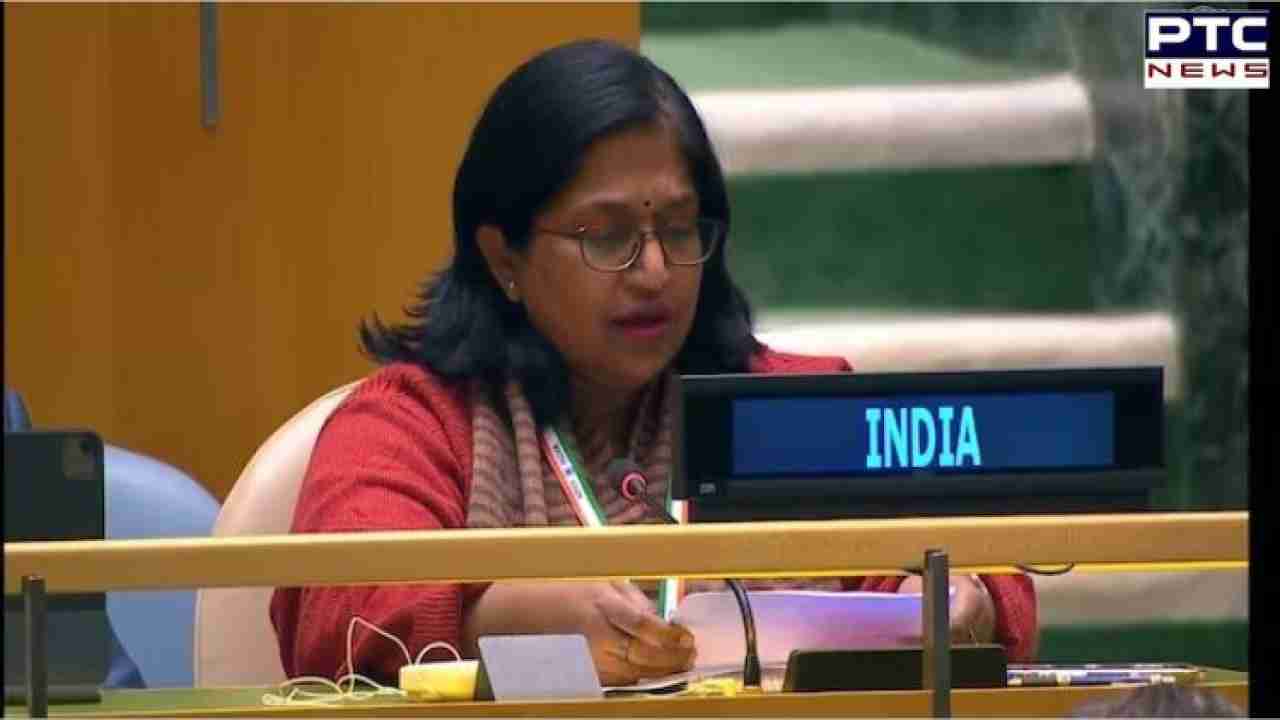

Israel-Hamas conflict: Why India abstained from voting on UN General Assembly resolution? Explained
Israel-Hamas conflict: : India's decision to abstain from voting on the UN General Assembly resolution that called for an immediate humanitarian truce in the Israel-Hamas conflict has garnered significant attention and raised important questions about the country's foreign policy approach.
At the heart of the matter is the explicit omission of the term "Hamas" in the resolution and India's insistence on sending a clear message against terrorism.
The resolution itself aimed to secure an immediate ceasefire in the ongoing Israel-Hamas conflict, a crisis that has led to significant human suffering and loss of life. It also sought unhindered humanitarian access to the Gaza Strip, which has been a target of Israeli airstrikes. However, India chose not to endorse this resolution, opting for an abstention.
_1aec382548ca7a1b065a8688267220b8_1280X720.webp)
India's stance is rooted in the belief that condemning terrorism should be unambiguous and unequivocal. By abstaining from the vote, India signaled that it was dissatisfied with the resolution's omission of the term "Hamas." While some might view this as a matter of diplomatic nuance, India insisted that a resolution seeking a ceasefire should explicitly denounce all acts of terrorism and not selectively focus on one side of the conflict.
Yojna Patel, India's Deputy Permanent Representative to the United Nations, made it clear that India sought to send a strong message against terror and violence while simultaneously supporting diplomacy and dialogue.
The India-Israel relationship has been evolving in recent years, with increasing cooperation in various sectors. India's abstention in this vote also demonstrates a delicate balancing act, as it maintains its strong partnership with Israel while taking a principled stand on condemning terrorism.
This episode emphasises the complexities of foreign policy and the importance of clear and unambiguous language in international resolutions. While India's abstention may be seen as a departure from the traditional approach of supporting Palestinian causes, it underscores the nation's unwavering commitment to combating terrorism.
_c112df80363ab39d7dde0e3a6c526ddf_1280X720.webp)
The resolution ultimately passed with significant international support, with 120 nations voting in favour, 14 against, and 45 abstaining, including India. Notably, other countries, such as Australia, Canada, Germany, Japan, Ukraine, and the UK, also abstained from the vote.
Additionally, India supported an amendment proposed by Canada that aimed to explicitly condemn Hamas and the terrorist attacks in Israel. This amendment, however, did not garner enough votes for adoption.
The United States also expressed its displeasure with the resolution's omission of Hamas and the absence of the term "hostage." This diplomatic episode serves as a reminder of the intricate web of international relations and the challenges of balancing diplomacy, security, and humanitarian concerns in the complex arena of global politics.
- With inputs from agencies
